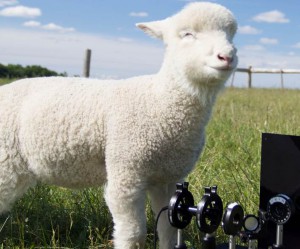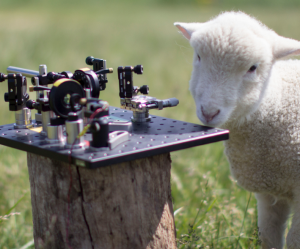Goal of the conference
The Annual conference on quantum cryptography (QCrypt) is a conference for students and researchers working on all aspects of quantum cryptography. This includes theoretical and experimental research on the possibilities and limitations of secure communication and computation with quantum mechanical devices or in the presence of quantum mechanical devices. (The conference includes but is not limited to research on quantum key distribution.)
It is the goal of the conference to represent the previous year’s best results on quantum cryptography and to support the building of a research community in quantum cryptography.
Format of the conference
In order to achieve this goal, the conference features both invited and contributed talks, selected by the steering committee and program committee, respectively. In addition, the steering committee invites up to 5 focus tutorials, one preceding each day, with the goal to ease communication between the different subfields.
In addition, QCrypt features a poster session and an industry exhibit. To further connections to industry, QCrypt also includes an industry session consisting of a panel discussion or short presentation. To share latest advances, QCrypt includes a hot topic session, in which very recent (post-deadline) and high-quality research results are selected and presented. To inform the public, QCrypt typically includes a talk for the general public outside the normal conference program.
QCrypt also features a room that is open for working groups in quantum information. QCrypt is a community event, and participants are highly encouraged by contributing to the program by hosting their own organized sessions in the working group room. There are no restrictions on what this room may be used for, provided all QCRYPT attendees can participate and reasonable time will be available to different working groups. Rooms can be booked at the QCrypt Wiki, which also provides room for the organization of working groups.
In line with the goal of showcasing the best results each year from all subfields, the conference has no published proceedings. Yet, contributed talks are highly competitive. QCrypt welcomes the submission of any interesting and important result, while allowing researchers from a wide range of disciplines to pursue publication in any venue appropriate to their field. For authors who want to put their abstracts to public, and to cite their presentations in QCrypt later, the local organizing committee offers an opportunity to upload such abstracts in an electronic form in the conference web site.
Oral presentations in QCrypt are recorded as videos. If presenters give permission, recorded videos as well as their presentation slides are uploaded to the conference web site.
Steering committee
The steering committee (SC) is responsible for shaping the medium- and long-term course of the conference series and for making sure that the conference maintains a high scientific and organizational standard. In particular, the SC has the responsibility to select the main organizer, venue and program chairs for the next conference. The SC has 8 members who serve for four years with two members being replaced each year. The selection of new members is made by the SC during the previous year. The SC chair is selected among the SC members, and is responsible for the external relations of the conference.
To ease communication between the SC and the local organization, it is desirable that a member of the local organizing committee takes part in the SC for at least the year before and during the conference.
The conference usually takes place over one week (Monday to Friday) in August or September. The venue is decided by the steering committee who tries to ensure a suitable rotation of continents wherever possible. The SC will solicit applications to host the conference approximately 2 years in advance.
The SC selects the invited speakers. At most half of the talk time of the conference can be given to invited speakers. The remaining talk time is reserved for contributed talks. SC members cannot be invited speakers, but are allowed to submit and present contributed papers.
The SC reviews submissions to the hot topic session, and selects hot topic papers which present very recent and high-quality research results.
Program committee
The role of the program committee (PC) is to select the contributed talks. The PC is chaired by one theorist and one experimentalist, of which one will be the primary chair and one the co-chair. The PC chairs are selected by the SC. With input from the SC, the PC chairs select and recruit the PC members of typically 10 or more people representing the broad range of subfields in quantum cryptography. SC members may not simultaneously serve on the PC. PC members are allowed to submit papers and to present contributed papers, except the PC chair, who may not submit contributed papers (but may submit posters). PC members must declare a conflict of interest on submissions to which they contributed so that they are not involved in discussing these papers in the PC.
Talks are reviewed and selected based on scientific excellence. The two PC chairs make final a selection from the scientifically excellent talks to create a balanced and interesting program, encouraging broad participation and representation of topics in QCRYPT.
Advisory committee
The advisory committee (AC) advises the SC on the long-term direction of the conference series. The AC has at most 10 members covering a broad range of geographical locations and scientific expertise. The advisory committee is regularly informed by the SC about the progress of the conference organization and gives input on future decisions, for instance on invited speakers and sponsorship contributed talks. AC members can be invited speakers, and are allowed to submit and present contributed papers.
Student paper prize
Since 2011, QCrypt features a prize for the best student submission. A submission is eligible for the student prize if and only if the main author(s) is/are a student(s) at the time of the submission and will present the work at QCrypt, and further a significant portion of the work must have been done by said student(s), including contributions to the key ideas. Eligibility can only be indicated at the time of submission. In very exceptional cases, including but not limited to parental leave or visa denial, a submission may still be considered eligible even if it is not presented by the/a student. Such exceptions must be approved by the PC chairs before the start of the conference. The student(s) are responsible for notifying all authors that the paper was nominated for the student prize, and all authors have 14 days following submission to voice any disagreements about the paper’s nomination to the PC chair. The PC chair is free to ask for any clarifications regarding the students’ contributions at any time.
The PC may select a number of eligible submissions for a shortlist. The final decision will be made in discussion with the SC, and the prize will be announced and awarded during the conference.
History of QCRYPT
QCRYPT was founded by Matthias Christandl and Stephanie Wehner, and the initial members of its steering committee were instrumental in its early development. The members of the steering committee continue to give their time to provide an excellent conference for the community.
PC Chairs & Local Organizers
| Edition | PC chair | PC co-chair | Local organizer chair(s) |
|---|---|---|---|
| 2011 Zürich | Matthias Christandl | Matthias Christandl | |
| 2012 Singapore | Patrick Hayden | Stephanie Wehner | |
| 2013 Waterloo | Ivan Damgård | Vadim Makarov | |
| 2014 Paris | Norbert Lütkenhaus | Gregor Weihs | Eleni Diamanti |
| 2015 Tokyo | Renato Renner | Richard Hughes | Masahiro Takeoka |
| 2016 Washington | Matthias Christandl | Hugo Zbinden | Yi-Kai Liu |
| 2017 Cambridge | Thomas Vidick | Paolo Villaresi | Richard Peny, Adrian Wonford |
| 2018 Shanghai | Roger Colbeck | Christoph Marquardt | Qiang Zhang |
| 2019 Montréal | Anthony Leverrier | Eleni Diamanti | Gilles Brassard, Claude Crépeau, Sébastian Gambs, Louis Salvail |
| 2020 Amsterdam | Frédéric Dupuis | Feihu Xu | Serge Fehr, Christian Schaffner |
| 2021 Amsterdam | Carl Miller | Tobias Gehring | Serge Fehr, Christian Schaffner |
Steering Committees
| 2011 | ETH Zurich | Matthias Christandl (chair), Roger Colbeck, Michele Mosca, Renato Renner, Louis Salvail, Wolfgang Tittel, Stephanie Wehner |
| 2012 | CQT Singapore | Matthias Christandl, Roger Colbeck, Michele Mosca, Renato Renner, Louis Salvail, Wolfgang Tittel, Stephanie Wehner (chair) |
| 2013 | IQC Waterloo | Matthias Christandl, Roger Colbeck, Michele Mosca (chair), Louis Salvail, Masahide Sasaki, Wolfgang Tittel, Stephanie Wehner |
| 2014 | Paris | Matthias Christandl, Roger Colbeck, Eleni Diamanti (chair), Michele Mosca, Louis Salvail, Masahide Sasaki, Wolfgang Tittel, Stephanie Wehner |
| 2015 | Tokyo | Matthias Christandl, Roger Colbeck, Eleni Diamanti, Norbert Lütkenhaus, Masahide Sasaki (chair), Christian Schaffner, Wolfgang Tittel , Stephanie Wehner |
| 2016 | Washington DC | Eleni Diamanti, Yi-Kai Liu (chair), Norbert Lütkenhaus, Masahide Sasaki, Christian Schaffner, Wolfgang Tittel , Stephanie Wehner |
| 2017 | Cambridge | Anne Broadbent, Marcos Curty, Eleni Diamanti, Yi-Kai Liu, Norbert Lütkenhaus, Masahide Sasaki, Christian Schaffner (chair), Qiang Zhang |
| 2018 | Shanghai | Anne Broadbent, Marcos Curty, Yi-Kai Liu, Norbert Lütkenhaus, Christian Schaffner, Akihisa Tomita, Hugo Zbinden, Qiang Zhang (chair) |
| 2019 | Montreal | Anne Broadbent, Marcos Curty (chair), Serge Fehr, Yi-Kai Liu, Christoph Marquardt, Akihisa Tomita, Hugo Zbinden, Qiang Zhang |
| 2020 | online from Amsterdam | Gorjan Alagic, Marcos Curty, Serge Fehr, Stacey Jeffery, Christoph Marquardt, Akihisa Tomita, Hugo Zbinden, Qiang Zhang (chair) |
| 2021 | online from Amsterdam | Gorjan Alagic, Marco Lucamarini, Serge Fehr, Stacey Jeffery, Christoph Marquardt (chair), Akihisa Tomita, Feihu Xu, Hugo Zbinden |
Student Paper Prizes
In some years, there are two winning papers selected, one in theory, one in experiment.
| Edition | Category | Winner | Title | |
|---|---|---|---|---|
| 2012 Singapore | Paul Jouguet | Experimental demonstration of continuous-variable quantum key distribution over 80 km of standard telecom fiber | video | |
| 2013 Waterloo | Tobias Gehring | Realization of Finite-Size Continuous-Variable Quantum Key Distribution based on Einstein-Podolsky-Rosen Entanglement | video | |
| 2014 Paris | Feihu Xu | Experimental QKD with source flaws and tight finite-key analysis | video | |
| 2015 Tokyo | Alexandru Gheorghiu | Robustness and device independence of verifiable blind quantum computing | video | |
| 2016 Washington | Rotem Arnon-Friedman | Simple and tight device-independent security proofs | video | |
| 2017 Cambridge | theory | Rotem Arnon-Friedman | Device-independent Randomness Amplification and Privatization | video |
| 2017 Cambridge | experiment | Norbert Kalb | Entanglement distillation between solid-state quantum network nodes | video |
| 2018 Shanghai | Wenyuan Wang | Enabling a Scalable High-Rate Measurement-Device-Independent Quantum Key Distribution Network: theory and experiment | video | |
| 2019 Montréal | theory | Jan Czajkowski | Quantum lazy sampling and game-playing proofs for quantum indifferentiability | |
| 2019 Montréal | experiment | Mariella Minder | Experimental Twin Field Quantum Key Distribution beyond the repeaterless secret key capacity bound | |
| 2019 Montréal | experiment | Mirko Pittaluga | Experimental Twin Field Quantum Key Distribution beyond the repeaterless secret key capacity bound | |
| 2020 Amsterdam | theory | Jiayu Zhang | Succinct Blind Quantum Computation Using a Random Oracle | video |
| 2020 Amsterdam | experiment | Fabian Beutel | Broadband Detector-Integrated On-Chip QKD Receiver for GHz Clock Rates | video |
| 2021 Amsterdam | theory | Tony Metger | Device-independent protocols from computational assumptions | video |
| 2021 Amsterdam | experiment | Likang Zhang | High-rate quantum key distribution with silicon photonics | video |
Best Poster Awards
Some editions of QCrypt features best-poster awards, sometimes awarded per poster session.
| Edition | Winner | Winner | |
|---|---|---|---|
| 2013 Waterloo | Rotem Arnon-Friedman | Neil Sinclair | |
| 2014 Paris | Boris Korzh | ||
| 2015 Tokyo | Mark Kaplan | ||
| 2017 Cambridge | Lev Vaidman | Cupjin Huang and Yaoyun Shi | |
| 2018 Shanghai | Shiyu Wang | Yingqiu Mao |
2021

2020

2019

2018

2017

2016

2015

2014

2013


2012

2011

